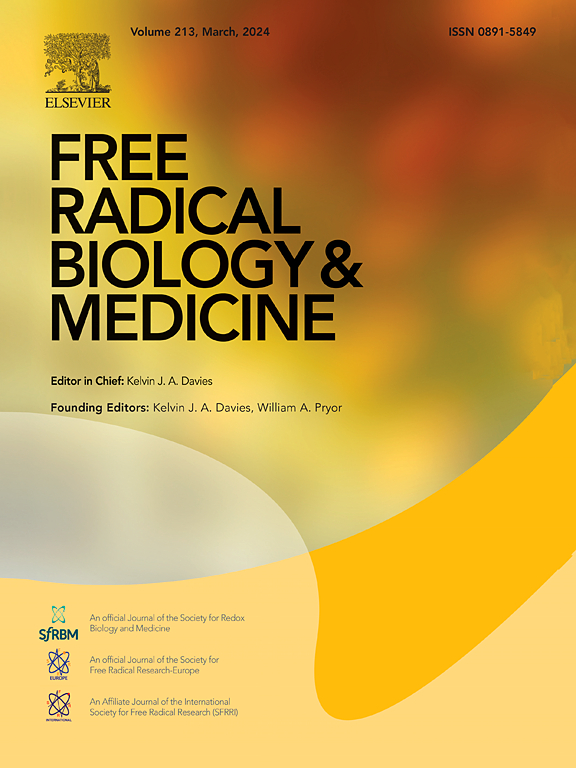ICAT通过c-Myc-ENO1轴驱动肿瘤相关巨噬细胞的乳酸化,从而促进宫颈癌的进展。
IF 8.2
2区 生物学
Q1 BIOCHEMISTRY & MOLECULAR BIOLOGY
引用次数: 0
摘要
宫颈癌(CC)免疫治疗的有效性受到肿瘤微环境(TME)的深刻影响,其中m2型肿瘤相关巨噬细胞(tam)的高浸润与不良治疗反应相关。因此,了解驱动m2型TAM极化的分子机制和寻找新的治疗靶点对于提高CC的免疫治疗效果至关重要。本研究发现,ICAT在CC中显著上调,与预后不良相关。从机制上讲,ICAT促进了c-Myc的核易位,增强了ENO1的转录,从而促进了糖酵解活性和乳酸在TME中的积累。肿瘤源性乳酸诱导tam中的H3K18乳酸化,进而激活ARG1表达,驱动M2极化,建立支持免疫逃避的免疫抑制微环境。综上所述,本研究表明ICAT通过调节c-Myc-ENO1轴,介导肿瘤细胞与巨噬细胞之间的相互作用,从而重塑TME,促进CC的迁移、侵袭和糖酵解,这些发现表明ICAT是治疗CC的潜在治疗靶点。本文章由计算机程序翻译,如有差异,请以英文原文为准。

ICAT drives lactylation of tumor-associated macrophages via the c-Myc-ENO1 axis to promote cervical cancer progression
The effectiveness of immunotherapy in cervical cancer (CC) is profoundly influenced by the tumor microenvironment (TME), where a high infiltration of M2-type tumor-associated macrophages (TAMs) correlates with poor therapeutic responses. Therefore, understanding the molecular mechanisms driving M2-type TAM polarization and identifying novel therapeutic targets are essential for enhancing immunotherapy outcomes in CC. In this study, ICAT was revealed to be significantly upregulated in CC, correlating with poor prognosis. Mechanistically, ICAT facilitated the nuclear translocation of c-Myc, enhancing ENO1 transcription, thereby promoting glycolytic activity and lactate accumulation in the TME. Tumor-derived lactate induced H3K18 lactylation in TAMs, which in turn activated ARG1 expression, driving M2 polarization and establishing an immunosuppressive microenvironment that supports immune evasion. In summary, this study demonstrates that ICAT, by regulating the c-Myc-ENO1 axis, mediates the interaction between tumor cells and macrophages, thereby reshaping the TME and promoting the migration, invasion, and glycolysis of CC. These findings demonstrate that ICAT represents a potential therapeutic target for the treatment of CC.
求助全文
通过发布文献求助,成功后即可免费获取论文全文。
去求助
来源期刊

Free Radical Biology and Medicine
医学-内分泌学与代谢
CiteScore
14.00
自引率
4.10%
发文量
850
审稿时长
22 days
期刊介绍:
Free Radical Biology and Medicine is a leading journal in the field of redox biology, which is the study of the role of reactive oxygen species (ROS) and other oxidizing agents in biological systems. The journal serves as a premier forum for publishing innovative and groundbreaking research that explores the redox biology of health and disease, covering a wide range of topics and disciplines. Free Radical Biology and Medicine also commissions Special Issues that highlight recent advances in both basic and clinical research, with a particular emphasis on the mechanisms underlying altered metabolism and redox signaling. These Special Issues aim to provide a focused platform for the latest research in the field, fostering collaboration and knowledge exchange among researchers and clinicians.
 求助内容:
求助内容: 应助结果提醒方式:
应助结果提醒方式:


